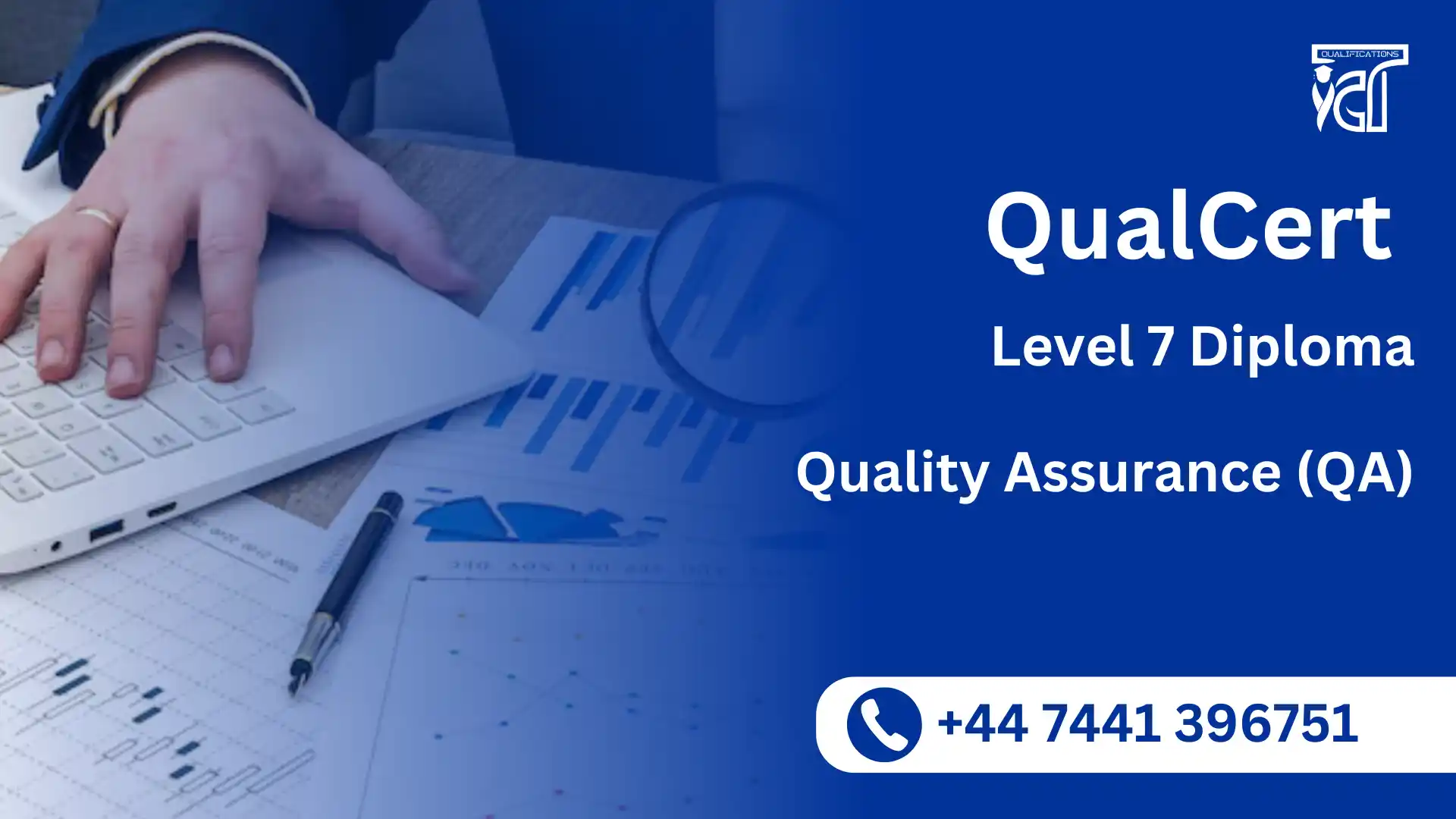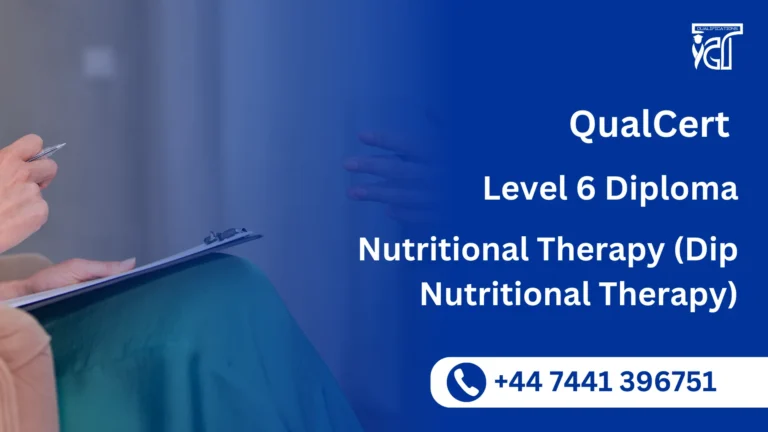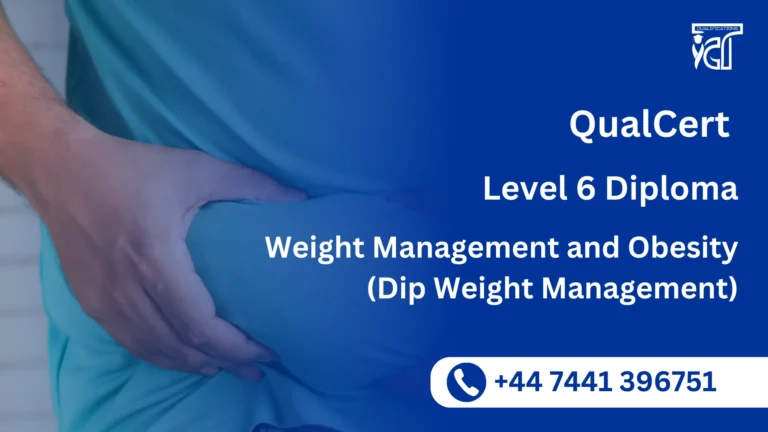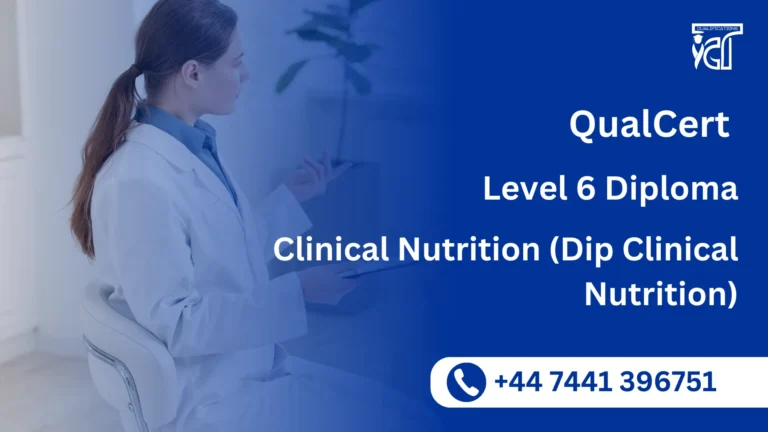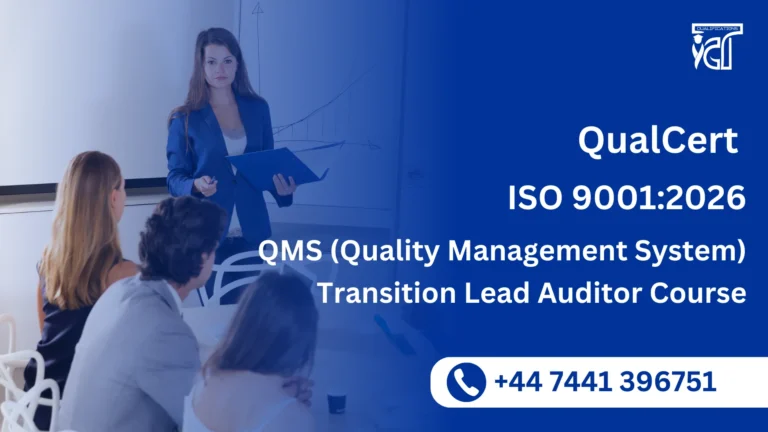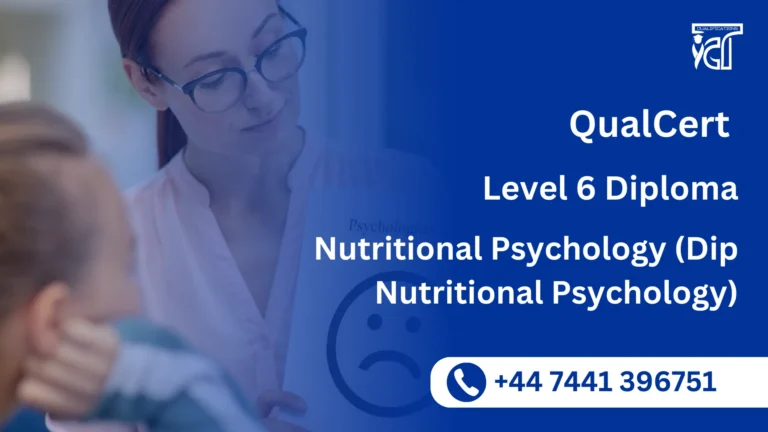The QualCert Level 7 Diploma in Quality Assurance (QA) is an advanced professional qualification designed for experienced quality practitioners, managers, and professionals aiming to lead and drive quality assurance strategies at a senior level. This diploma provides in-depth knowledge, practical tools, and strategic approaches necessary to design, implement, and manage effective quality systems across various industries.
In today’s highly competitive global market, organizations demand quality leaders who can ensure compliance, drive continuous improvement, and uphold international standards. This Level 7 qualification equips learners with advanced expertise in auditing, risk management, regulatory compliance, and quality leadership—skills essential for steering organizational excellence.
This program is ideal for individuals already working in quality-related roles who wish to progress to leadership or consultancy positions, as well as for professionals from other disciplines seeking to transition into the field of quality management at a strategic level.
Through a blend of theoretical frameworks and real-world applications, learners will develop the confidence and capabilities needed to influence quality outcomes and business performance on a broader scale.
QualCert Level 7 Diploma in Quality Assurance (QA)
The QualCert Level 7 Diploma in Quality Assurance (QA) certification is designed to provide a structured and comprehensive framework for developing expertise in quality assurance. Below is the qualification structure, including the Total Qualification Time (TQT) 1200, Guided Learning Hours (GLH) 600, and 120 Credits associated with the program.
| Unit Ref# | Unit Title | Credit | GLH | TQT |
| QC07014 – 1 | Advanced Quality Management Systems | 20 | 100 | 200 |
| QC07014 – 2 | Strategic Quality Improvement | 20 | 100 | 200 |
| QC07014 – 3 | Leadership in Quality Assurance | 20 | 100 | 200 |
| QC07014 – 4 | Auditing and Compliance in QA | 20 | 100 | 200 |
| QC07014 – 5 | Data Analytics and Process Optimization | 20 | 100 | 200 |
| QC07014 – 6 | Global Quality Standards and Best Practices | 20 | 100 | 200 |
GLH (Guided Learning Hours) and TQT (Total Qualification Time) are terms commonly used in vocational qualifications to help define the amount of time a learner is expected to spend on their studies.
1. GLH (Guided Learning Hours)
GLH refers to the number of hours a learner spends being directly taught, supervised, or supported during their course. This includes the time spent in activities such as:
- Classroom instruction
- Practical workshops
- One-on-one tutoring or mentoring sessions
- Online learning sessions with tutor support
In other words, GLH represents the time that learners are actively engaged with their instructors or learning activities.
2. TQT (Total Qualification Time)
TQT represents the total amount of time a learner is expected to invest in completing a qualification, including:
- GLH (Guided Learning Hours): Time spent on direct learning, as explained above.
- Self-Directed Learning: This includes time spent on independent study, research, assignment completion, preparation for exams, and any other work the learner does outside of direct teaching hours.
TQT is a broader measure that includes all the time required to achieve the qualification. It helps learners and employers understand the overall commitment required for the qualification.
Key Differences Between GLH and TQT:
- GLH focuses on direct learning with guidance or supervision.
- TQT includes GLH as well as independent study time and other learning-related activities.
Example:
If a qualification has a TQT of 600 hours and a GLH of 250 hours, it means the learner should spend 250 hours in direct learning (classroom, online, or tutor-led sessions) and 350 hours on independent study or research.
Learning Outcomes: QualCert Level 7 Diploma in Quality Assurance (QA)
- Advanced Quality Management Systems
- Understand the principles and frameworks of modern quality management systems.
- Analyze different quality methodologies, including ISO standards and Six Sigma.
- Develop and implement quality control and assurance strategies in complex organizations.
- Evaluate the impact of quality systems on business performance and customer satisfaction.
- Strategic Quality Improvement
- Assess the role of continuous improvement in achieving long-term organizational success.
- Apply problem-solving techniques such as Lean and Kaizen to enhance quality performance.
- Design and implement strategic quality improvement plans.
- Measure the effectiveness of quality initiatives using key performance indicators (KPIs).
- Leadership in Quality Assurance
- Develop leadership skills essential for managing quality assurance teams and projects.
- Understand change management principles in the context of quality improvement.
- Foster a culture of quality excellence within an organization.
- Enhance decision-making capabilities for resolving quality-related challenges.
- Auditing and Compliance in QA
- Understand the principles and processes of internal and external quality audits.
- Develop strategies for ensuring compliance with industry regulations and standards.
- Identify non-conformities and implement corrective and preventive actions.
- Enhance risk management practices through effective quality auditing.
- Data Analytics and Process Optimization
- Utilize data-driven approaches to identify trends and optimize quality processes.
- Apply statistical tools and techniques for quality analysis and decision-making.
- Integrate data analytics into quality management systems for continuous improvement.
- Assess the impact of automation and digitalization on quality assurance.
- Global Quality Standards and Best Practices
- Analyze international quality standards and their implications for businesses.
- Compare quality management practices across different industries and regions.
- Develop strategies to align organizational quality practices with global benchmarks.
- Understand the role of sustainability and corporate responsibility in quality assurance.
The QualCert Level 7 Diploma in Quality Assurance (QA) offers a wide range of strategic, professional, and practical benefits for individuals seeking to advance their expertise and leadership in quality management. Key advantages of this high-level qualification include:
1. Advanced Professional Recognition
Gain a prestigious, internationally respected diploma that validates your expertise and leadership in quality assurance at a senior and strategic level.
2. Leadership & Strategic Management Skills
Develop the ability to design, implement, and lead complex quality assurance systems, ensuring continuous improvement and compliance with global standards like ISO 9001.
3. Enhanced Career Opportunities
Open pathways to high-level roles such as Quality Assurance Manager, Compliance Director, Head of Quality, or Quality Consultant in sectors like manufacturing, healthcare, engineering, construction, and more.
4. Global Employability
Become qualified for opportunities in international organizations that prioritize quality excellence, regulatory compliance, and customer satisfaction.
5. Improved Organizational Impact
Gain the skills to reduce waste, improve efficiency, increase product/service quality, and strengthen customer confidence—making you an asset to any organization.
6. Foundation for Further Study
Serve as a strong platform for pursuing even higher-level qualifications, such as MBA programs, or specialized certifications in Six Sigma, Lean Management, or ISO auditing.
7. Consultancy & Independent Practice Opportunities
Equips professionals to work as independent quality consultants or auditors, offering services to multiple industries and clients worldwide.
8. Increased Earning Potential
Senior-level QA roles typically offer higher salary brackets, and this diploma boosts your chances of securing high-paying leadership or consultancy positions.
9. Tailored for Experienced Professionals
Designed specifically for individuals with existing knowledge or experience in QA, ensuring advanced content that builds on your current capabilities.
This diploma empowers learners to become quality leaders capable of driving meaningful change, ensuring regulatory excellence, and fostering a culture of continuous improvement in any organization.
The QualCert Level 7 Diploma in Quality Assurance (QA) is tailored for experienced professionals and aspiring quality leaders who aim to operate at a strategic level within their organizations. The ideal learner for this advanced qualification includes:
1. Experienced Quality Professionals
Individuals currently working in quality assurance, control, or compliance roles who wish to deepen their expertise and progress into senior management or consultancy positions.
2. Quality Managers and Team Leaders
Professionals managing QA teams or overseeing quality processes who are looking to formalize their experience and expand their leadership capabilities.
3. Engineers and Technical Experts
Engineers from manufacturing, construction, healthcare, IT, or industrial sectors aiming to transition into quality leadership or integrate quality frameworks into their technical operations.
4. Regulatory and Compliance Officers
Individuals responsible for meeting industry-specific regulatory requirements who want to enhance their ability to design and implement compliant QA systems.
5. Consultants and Auditors
Independent consultants or internal/external auditors who need an advanced qualification to support their practice and credibility in quality assurance consultancy.
6. Mid to Senior-Level Managers
Leaders across departments—operations, production, or administration—who play a role in organizational excellence and wish to develop strategic quality assurance capabilities.
7. Professionals Seeking Career Progression
Those aiming for senior roles such as Quality Director, Compliance Head, or Chief Quality Officer, requiring a comprehensive understanding of strategic QA methodologies.
This qualification is ideal for self-motivated learners who have a strong foundation in quality systems and are committed to continuous improvement, organizational excellence, and professional growth at a global standard.
Entry Requirements
Register Now
Qualification Process
Qualification Process for the QualCert Level 7 Diploma in Quality Assurance (QA)
- Self-Assessment:
Begin by evaluating your eligibility to ensure you meet the qualification requirements, including work experience, knowledge, and language proficiency. - Registration:
Complete your registration by submitting the required documents, including a scanned copy of a valid ID, and paying the registration fee. - Induction:
An assessor will conduct an induction to confirm your eligibility for the course and explain the evidence requirements. If you do not meet the criteria, your registration will be canceled, and the fee will be refunded. - Assignmnets & Evidence Submission:
Provide all assignmnets and the necessary evidence based on the assessment criteria outlined in the course. If you are unsure of the required evidence, consult with the assessor for guidance on the type and nature of evidence needed. - Feedback and Revision:
The assessor will review your submitted evidence and provide feedback. Evidence that meets the criteria will be marked as “Criteria Met,” while any gaps will be identified. You will be asked to revise and resubmit if needed. - Competence Evidence:
Submit final evidence demonstrating that all learning outcomes have been met. This evidence will be marked as “Criteria Met” by the assessor once it is satisfactory. - Internal Quality Assurance (IQA):
The Internal Quality Assurance Verifier (IQA) will review your evidence to ensure consistency, quality, and compliance with standards. - External Verification:
The IQA will submit your portfolio to QualCert External Quality Assurance Verifiers (EQA) for final confirmation. The EQA may contact you directly to verify the authenticity of your evidence. - Certification:
Upon successful completion of all checks, QualCert will issue your official certificate, confirming that you have attained the QualCert Level 7 Diploma in Quality Assurance (QA).

